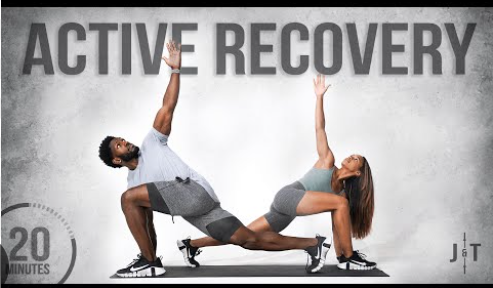Recover Like a Pro: Post-Workout Strategies for Every Athlete

Post-workout recovery is just as crucial as the workout itself, if not more. It’s during the recovery phase that your body repairs and strengthens, leading to improved performance and reduced risk of injury. Whether you’re a professional athlete or a fitness enthusiast, mastering post-workout recovery strategies can make a significant difference in your overall fitness journey.
In this article, we’ll delve into some effective post-workout recovery techniques that can help you recover like a pro.
Contents
Nutrition Is Key:
One of the most important aspects of post-workout recovery is nutrition. After a workout, your body needs to replenish glycogen stores, repair muscle tissue, and kickstart the recovery process.
Aim to consume a combination of carbohydrates and protein within 30 minutes to an hour after your workout. Carbohydrates help replenish glycogen stores, while protein aids in muscle repair and growth. Opt for sources like lean meats, eggs, Greek yogurt, nuts, and fruits to refuel your body effectively.
Hydration:
Proper hydration is essential for optimal recovery. During a workout, you lose fluids through sweat, and it’s crucial to replenish them afterward. Dehydration can lead to decreased performance, muscle cramps, and fatigue.
Aim to drink water consistently throughout the day and pay attention to your fluid intake post-workout. If you’ve engaged in intense exercise or lost a significant amount of sweat, consider replenishing electrolytes with sports drinks or coconut water to restore balance.
Active Recovery:
While rest is essential for recovery, incorporating active recovery activities can help enhance circulation and promote muscle recovery. Light exercises such as walking, cycling, or swimming can help flush out lactic acid and reduce muscle soreness. Active recovery sessions should be low-intensity and focus on gentle movement to promote blood flow to the muscles without causing additional stress. Additionally, using topical treatments like CBD cream can provide targeted relief and support overall recovery.
Stretching and Mobility Work:
Stretching is an integral part of any post-workout routine. It helps improve flexibility, reduce muscle tension, and prevent injury. Focus on stretching the major muscle groups targeted during your workout, holding each stretch for 15-30 seconds. Additionally, incorporating mobility exercises can help improve joint range of motion and alleviate stiffness. Foam rolling and yoga are also effective modalities for enhancing flexibility and mobility.
Get Adequate Sleep:
Quality sleep is crucial for recovery and overall performance. During sleep, the body releases growth hormone, which aids in muscle repair and regeneration. Aim for 7-9 hours of uninterrupted sleep each night to optimize recovery. Create a relaxing bedtime routine, minimize screen time before bed, and ensure your sleep environment is conducive to restorative sleep.
Use Recovery Tools:
Integrating recovery tools into your post-workout regimen can expedite recovery and alleviate muscle soreness. Items such as foam rollers, massage balls, and percussion massagers play a crucial role in releasing muscle tension and enhancing blood circulation.
Additionally, incorporating compression garments can aid in reducing swelling and promoting venous return, thus enhancing the recovery process. Moreover, consider adding a CBD topical roll-on to your arsenal of recovery tools. CBD has been shown to possess anti-inflammatory properties and may provide targeted relief to sore muscles when applied topically.
Listen to Your Body:
Perhaps the most important aspect of post-workout recovery is listening to your body. Pay attention to how you feel both during and after exercise. If you’re experiencing excessive fatigue, soreness, or persistent pain, it may be a sign that you need to adjust your training intensity or take a rest day. Pushing through pain or fatigue can lead to overtraining and increase the risk of injury.
In Conclusion
Recovering like a pro requires a holistic approach that encompasses nutrition, hydration, rest, and recovery strategies. By prioritizing post-workout recovery, you can optimize your performance, prevent injuries, and achieve your fitness goals more effectively. Incorporate these strategies into your routine and give your body the care it needs to thrive. Remember, recovery is not a luxury; it’s a necessity for long-term health and success in your fitness journey.




